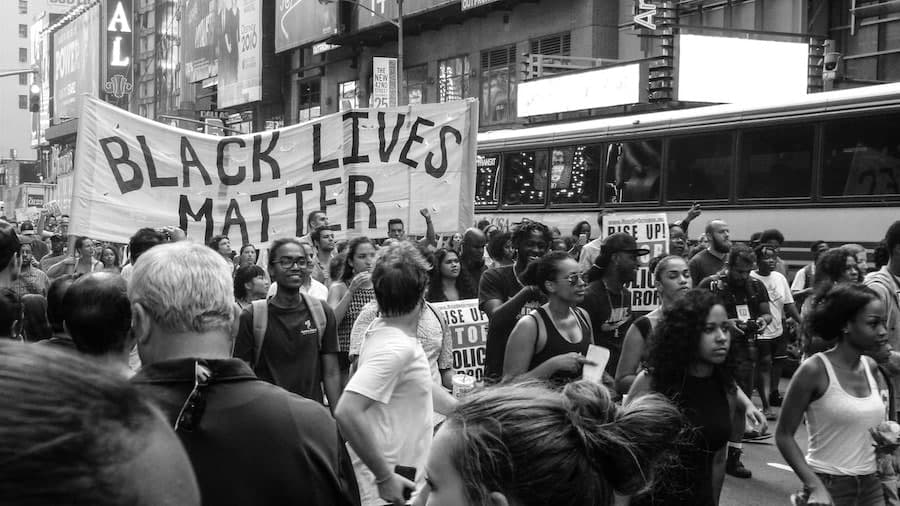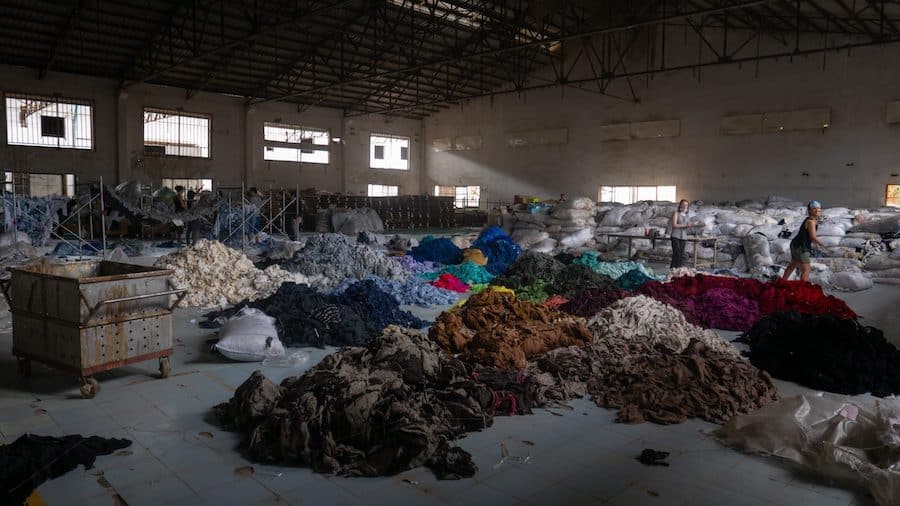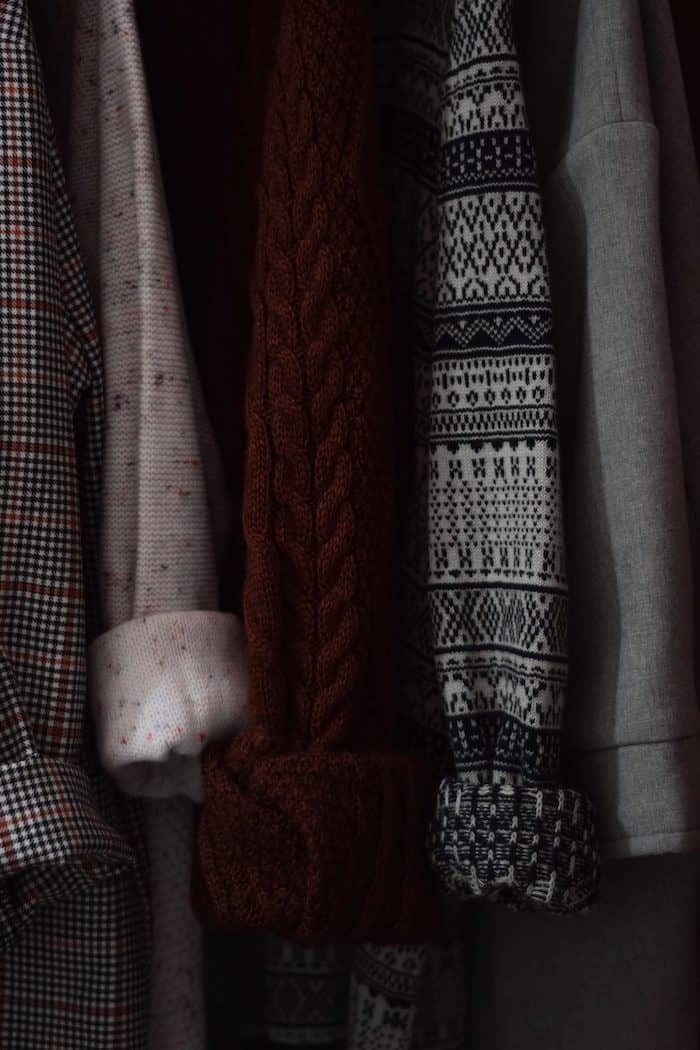At Eco-Stylist, we promote brands who are making a difference in the sustainable fashion industry. For the past two years, we’ve been partnered with Remake, using their sustainable brand criteria to research and evaluate brands on a number of factors, including transparency, environmental sustainability, maker well-being, use of sustainable raw materials, and leadership within the ethical fashion sphere. We’ve condensed this criteria to three impact areas–transparency, fair labor, and sustainably made–consolidating the information without compromising the values.
Recently, we expanded our criteria to include diversity, equity and inclusion, firmly standing behind Remake’s decision to create an inclusive and diverse fashion industry for all.
Why did we update our criteria?
In 2020, the wrongful deaths of Breonna Taylor, George Floyd, and Ahmaud Arbery at the hands of the police sparked protests across the nation. Of course, these were far from the first instances of police brutality in America. The unjust deaths of Black men and women are an alarmingly consistent piece of our history … as are the prejudice, injustice, and systemic oppression Black Americans face on a daily basis and throughout many industries, the fashion industry being one.

While the Black Lives Matter movement has received a tremendous response from non-Black citizens and corporations over the past year, one might wonder whether the black squares posted to social media, the promises to “listen and learn,” and the public commitments to anti-racism have any real substance to them. Unfortunately, as Remake notes, “there have been few lasting commitments to diversity, equity, and inclusion in the fashion industry as a whole,” leading us to believe the Instagram posts and open confessions were little more than performative activism.
It’s not all negative, though–there’s an opportunity here to make real progress. We know our partnered brands care about their people and the social environments they’re creating. Together, we can go beyond performative action and make a real difference in the sustainable fashion sphere.
What are diversity, equity, and inclusion, and why do they matter?
Remake defines diversity, equity, and inclusion (DEI) as follows:
- Diversity: the inclusion of individuals representing more than one background.
- Equity: being fair and just.
- Inclusion: including and integrating all people in activities, organizations, and political processes–especially those who have suffered discrimination.
Diversity, equity, and inclusion are central to ethical practice. Silence on these issues neglects the holistic care of employees–especially in the fashion industry, where the majority of the people stitching together our products are, as Remake points out, “Black and brown women in places we have learned to classify as far away and disparate–but many BIPOC who are underpaid and overworked live and work alongside us every day.”

As sustainable businesses, it’s our duty to uphold ethical practices, but DEI are also hugely beneficial for growth. Promoting diversity in the workplace is more than “the right thing to do”–it increases creativity and innovation, while inclusivity increases productivity and employee satisfaction, as reported by Forbes. When a variety of voices are sought out and valued, workplaces thrive. According to Sundar Pichai, the CEO of Google, “A diverse mix of voices leads to better discussions, decisions, and outcomes for everyone.”
What does the updated criteria include?
The updated criteria is designed to evaluate a brand’s disclosure of fair wages and the corporate welfare of their BIPOC employees. It’s guided by the following questions:
- Does the company demonstrate a commitment to intersectional environmental sustainability (through environmental sustainability policies, goals, collections, etc.)?
- Is senior leadership heterogeneous with POC making up a reasonable % of the Board/C-Suite where reasonable is a reflection of the makeup of where the company HQ is based (in the US at least 20%)?
- Does the company hire POC at all levels of work, including retail storefronts, corporate offices, distribution centers and warehouses?
- Does the company have efforts to encourage an inclusive workplace and prevent discriminatory practices?
These questions address each point in the supply chain, asking that the employee makeup of any given brand reflects the demographics of its location. These asks, while beyond reasonable, are meant to challenge the fashion industry. The umbrella of “ethically-sourced” clothing needs to include the ethical practice of hiring and nurturing a diverse workforce.

Think of these questions as a guide–the next steps to better embody sustainability within your work. After all, we should always be learning, growing, and striving to be better. This is our chance to do just that.
How does DEI impact the brand ratings?
The DEI questions noted above represent 5 points, and are part of a brand’s total score. Brands need to earn 50 points or more in order to be certified.
Within Remake’s criteria you’ll find 4/5 of the DEI points under a category called LDI, or Leadership, Diversity, and Inclusion. The LDI category is worth 8 points with a 50/50 split on environmental leadership and DEI.
What does that mean exactly? It’s comprised of these three questions:
- Does the company take a stand to encourage less and more ethical production and consumption (even when this eats into their profits)?
- Is senior leadership heterogeneous with POC making up a reasonable % of the Board/C-Suite where reasonable is a reflection of the makeup of where the company HQ is based (in the US at least 20%)?
- Does the company have efforts to encourage an inclusive workplace and prevent discriminatory practices?
How can you improve?

Personally and professionally, there’s room for all of us to educate ourselves on the value of diversity, equity, and inclusion. Seeking out resources related to anti-racism and listening to the lived experiences of people from different ethnic backgrounds than your own is a great way to start on a personal growth journey.
A sustainable fashion industry is a more inclusive and diverse industry. At Eco-Stylist, we are committed to growth, but we understand it can be painful. Therefore, we do not expect our partner brands to make rapid changes because candid growth takes time. However, we hope the period of time permitted will be more than enough to make the industry diverse, equitable, and inclusive.
In terms of improving your sustainability score, Remake recommends first “increasing diversity in productive recruitment and hiring practices.” From there, “ensuring the pipeline within the company emphasizes diverse growth in opportunity and diversity in upward mobility is essential in contributing to overall goals of sustainable growth.”
Of course, each brand’s situation is different, and there isn’t likely to be a one-size-fits-all solution for improving your approach to DEI. We want you to succeed, so we’re willing to work with you to find solutions that will be most helpful in your particular situation. Remember any conflict or pushback you may face initially is likely to lead to lasting, positive change, presumably benefiting the overall structure of your business.
Summing it up …
Our decision to update our criteria to include diversity, equity, and inclusion is a change we believe is necessary for the sustainable fashion industry. While this causes some brands to no longer pass our sustainable fashion criteria overall, we view this as an opportunity for growth. As we aim to create meaningful change within the fashion industry, it’s imperative we take steps to improve the working lives of BIPOC. Without taking action, a critical component of ethical practice is missing.
We’d like to leave you with this final piece of wisdom from Remake: “By increasing diversity, a company will ensure that it is addressing issues that have perpetuated an unethical environment within the fashion industry. Increasing diversity within company culture increases long-term, actual activism.”
Performative action isn’t sustainable. Let’s work together to transform the industry for the better.

Celia Wiseman studied Communication and Creative Writing at the University of Iowa, and her growing interest in sustainable living led her to Eco-Stylist. In her free time she enjoys reading, writing, and making videos, as well as any other activity that allows her to get creative.









